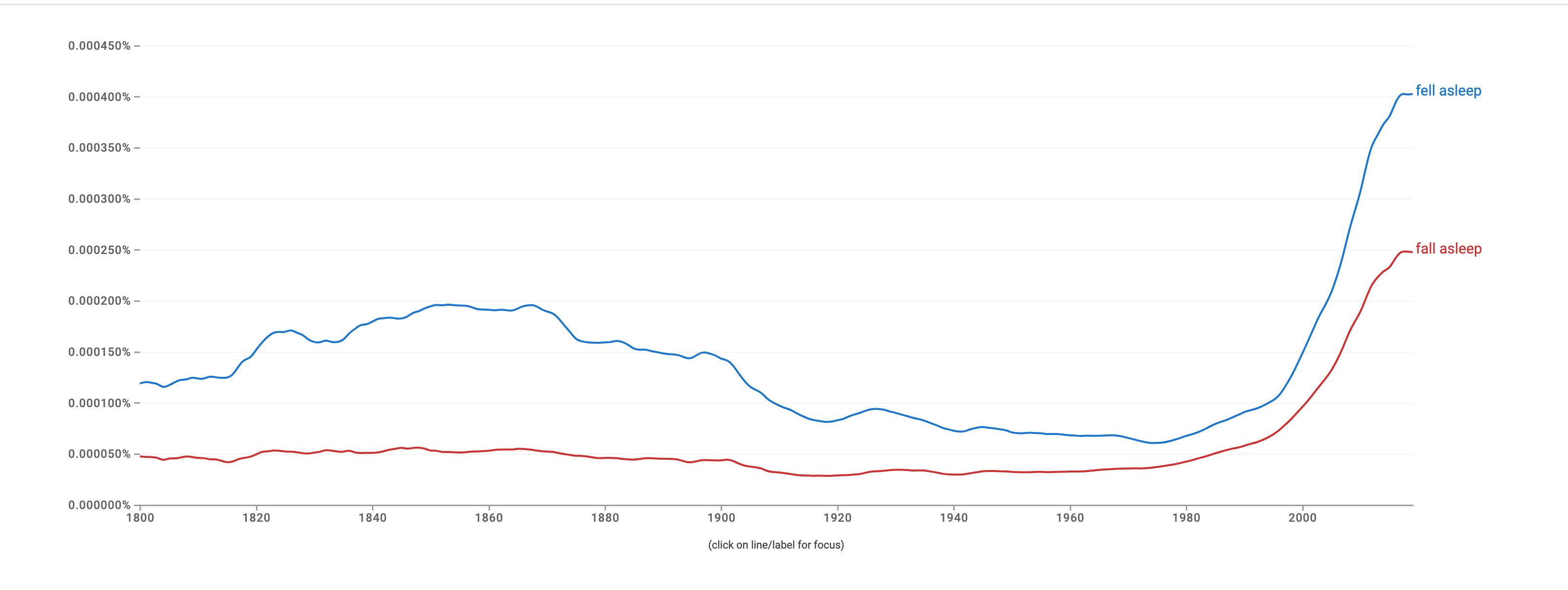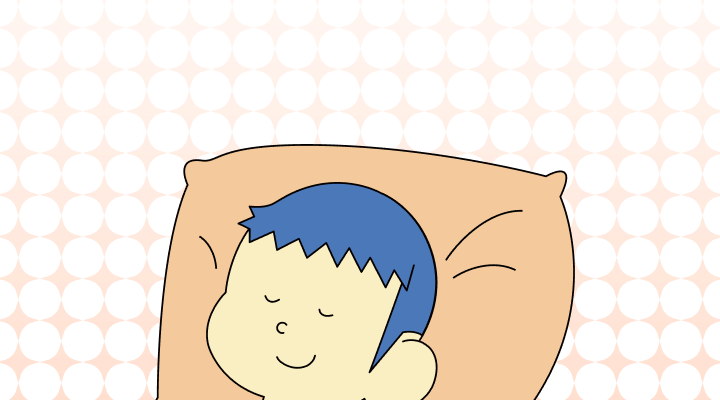- "Fall asleep" refers to the act of transitioning from a state of wakefulness to a state of sleep, typically characterized by a gradual reduction in consciousness and awareness.
- "Fell asleep" indicates that the speaker transitioned from a state of wakefulness to sleep at a specific past moment.
😴 "I fall asleep every night at around 10 PM, but last night, I fell asleep much later due to an engaging book."
In the sentence "I fall asleep every night at around 10 PM, but last night, I fell asleep much later due to an engaging book," "fall asleep" is a present tense statement indicating a habitual action of going to sleep at around 10 PM every night. On the other hand, "fell asleep" is past tense, specifying a singular event that occurred last night when the speaker went to sleep later than usual because of reading an engaging book.
We all love the sweet embrace of sleep, but when it comes to talking about it, things can get a little… tricky. Do you "fall asleep" every night, or did you "fall asleep" at that boring meeting yesterday? Fear not, sleepyheads! Let's untangle the slumbering secrets of "I fall asleep" and "I fell asleep."
In the graph below, we can see that the term "fell asleep" is used to a greater extent than "fall asleep." The use of these two terms have steeply increased since the 2000s.

What does asleep mean?
Asleep
1. (adjective) In a state of sleep; not awake.
- Examples:
- The baby was fast asleep in its crib.
- I was so tired, I fell asleep as soon as I hit the pillow.
- She was sound asleep and didn't hear the phone ring.
2. (adverb) Into a state of sleep.
- Examples:
- The children drifted off to sleep as the sun set.
- The lullaby rocked the baby gently asleep.
- He put a book on his chest to help himself fall asleep.
3. (figurative) In a state of inactivity, sluggishness, or indifference.
- Examples:
- The economy has been asleep for the past few years.
- The town seemed asleep on a Sunday morning.
- Her passion for the project seemed to have gone to sleep.
4. (euphemistic) Dead.
- Example:
- Her grandfather sadly fell asleep last night.
Notes:
- The opposite of "asleep" is "awake."
- You can use the phrase "half asleep" to describe someone who is not fully awake or alert.
- The phrase "fall asleep" is often used to describe the process of entering sleep.
- The phrase "wake up" is often used to describe the process of leaving sleep.
What do fall asleep vs. fell asleep mean?
Fall asleep:
- Present tense: Refers to the habitual or general act of entering sleep, implying ongoingness.
- Examples:
- "I usually fall asleep around 10 pm."
- "Counting sheep helps me fall asleep."
- "Her soothing voice makes it easy to fall asleep."
Fell asleep:
- Past tense: Refers to a specific instance of entering sleep, marking a completed action in the past.
- Examples
- "I fell asleep early last night after a long day."
- "The lecture was so boring, I fell asleep halfway through."
- "I remember the first time I fell asleep in my new bed."
How to use fall asleep vs. fell asleep
- Use "fall asleep" for general statements about your sleep routine or tips for sleep.
- Use "fell asleep" for specific occasions of sleep in the past.
Additionally:
- Present perfect continuous (have been falling asleep): Emphasizes extended or recent occurrences of falling asleep.
- Example: "I've been falling asleep really early lately due to stress."
Tense: "Fall asleep" is present, "fell asleep" is past.
Focus: "Fall asleep" is habitual/ongoing, "fell asleep" is specific/completed.

More example sentences for "fall asleep" and "fell asleep"
Fall Asleep:
Present tense:
- The gentle rain outside is helping me fall asleep.
- I'm trying to fall asleep, but my thoughts keep racing.
- Every night, I fall asleep to the sound of my cat purring.
Future tense:
- I hope I can fall asleep easily after such a long day.
- We'll all fall asleep under the stars later tonight.
- The doctor prescribed medication to help me fall asleep better.
Negative:
- I can't seem to fall asleep, no matter how hard I try.
- The loud music next door made it impossible for me to fall asleep.
- My excitement for the trip kept me from falling asleep all night.
Fell Asleep:
Past tense:
- I fell asleep as soon as I hit the pillow.
- We all fell asleep quickly after telling scary stories.
- She fell asleep reading a book in the armchair.
Continuous past tense:
- I was just falling asleep when the phone rang.
- He was still falling asleep when I left the house.
- We were all falling asleep by the time the movie ended.
Conditional:
- If I had known you were coming, I wouldn't have fallen asleep so early.
- I would have finished the project if I hadn't fallen asleep at my desk.
- You could have woken me up, I wouldn't have fallen asleep so deeply.
Figuratively:
- The city fell asleep as the clock struck midnight.
- The anxieties of the day slowly fell asleep after a soothing meditation session.
- The old stories fell asleep in the dusty attic, forgotten by time.
1. I usually ______ around 10 pm, but last night I ______ too late watching movies.
2. Counting sheep can help you ______ faster, but it doesn't always work for me.
3. I ______ on the train this morning and woke up at the next stop!
4. My baby ______ early after a long day playing in the park.
5. "Have you ever ______ on a rollercoaster?" my friend asked. I replied, "No, but I ______ on a ferris wheel once."
6. It's important to create a relaxing bedtime routine so you can ______ easily.
7. The movie was so boring, I almost ______ in the theater.
8. When I was little, I ______ with a stuffed animal every night.
9. I'm so tired after hiking all day that I know I'll ______ the moment I hit the pillow.
10. My friend used to have trouble ______ because of homework stress, but they learned some relaxation techniques that helped.
Answer Key:
- fall asleep, fell asleep
- fall asleep
- fell asleep
- fell asleep
- fallen asleep, fell asleep
- fall asleep
- fell asleep
- fell asleep
- fall asleep
- fell asleep
Want to sound like a native speaker?
Engram’s AI-powered grammar checker makes your English sound like a native speaker’s, suggesting natural English expressions on top of fixing grammar, spelling, punctuation, word order, and vocabulary.

References:















